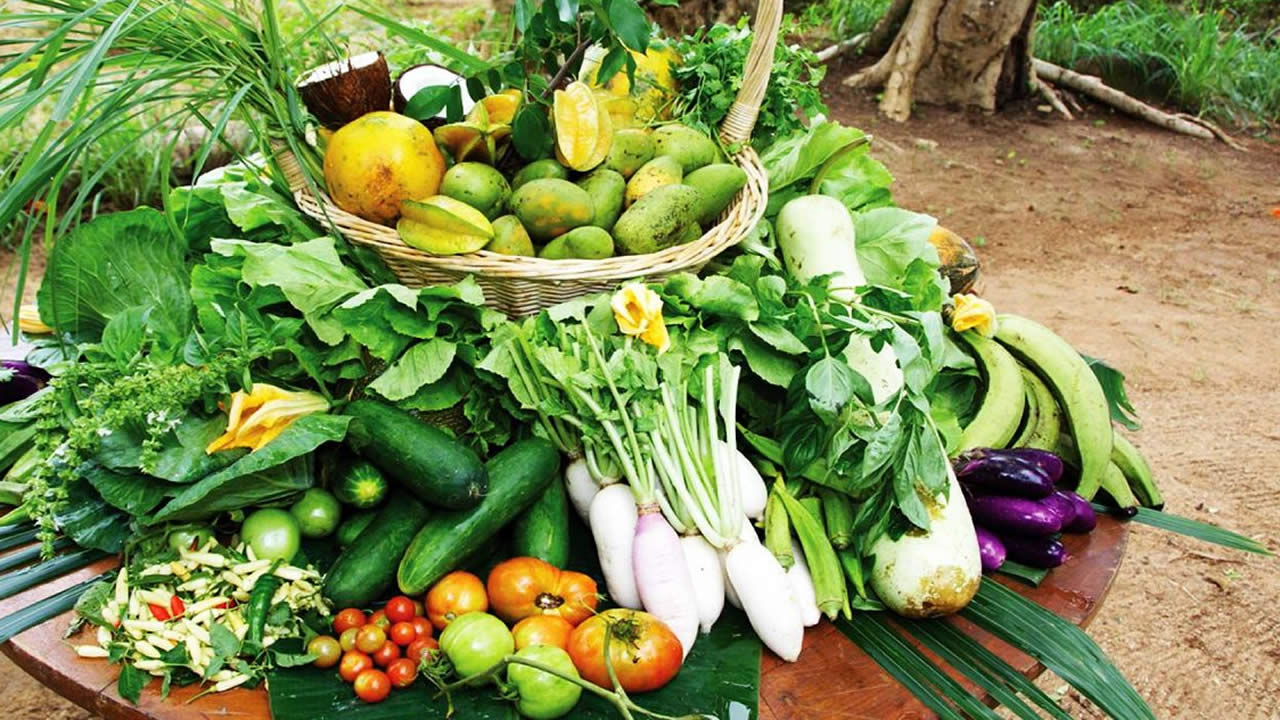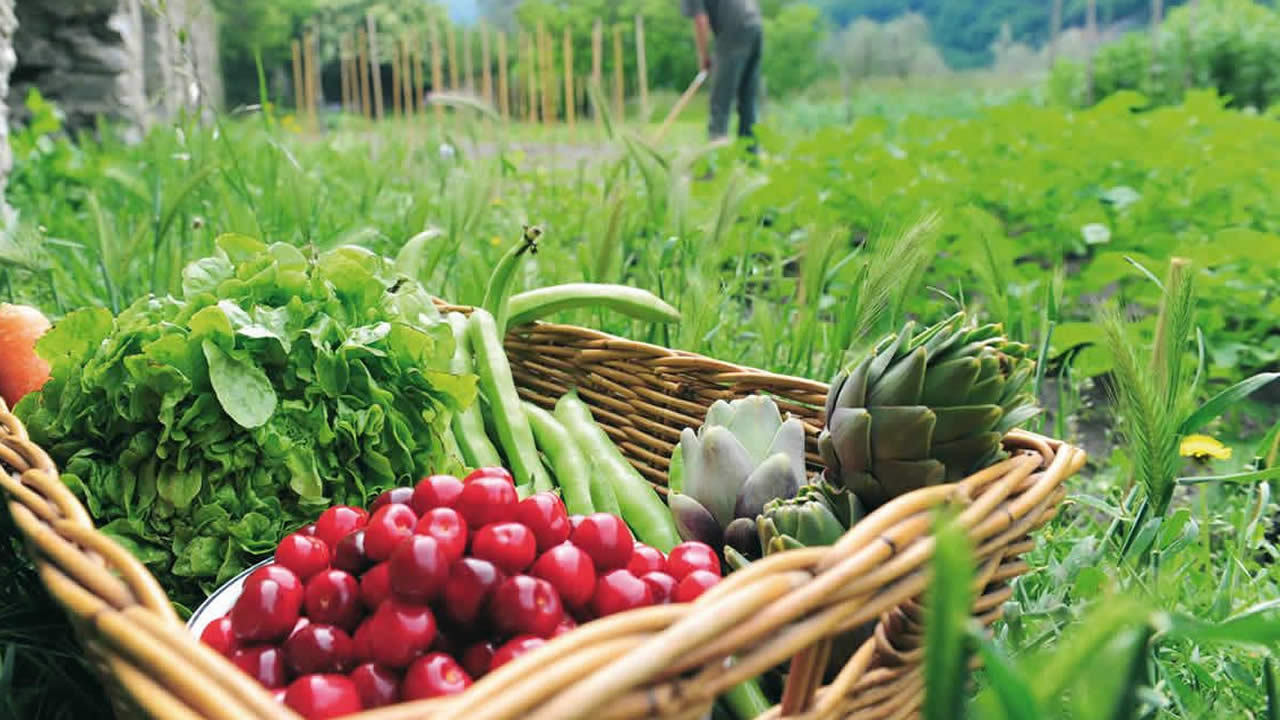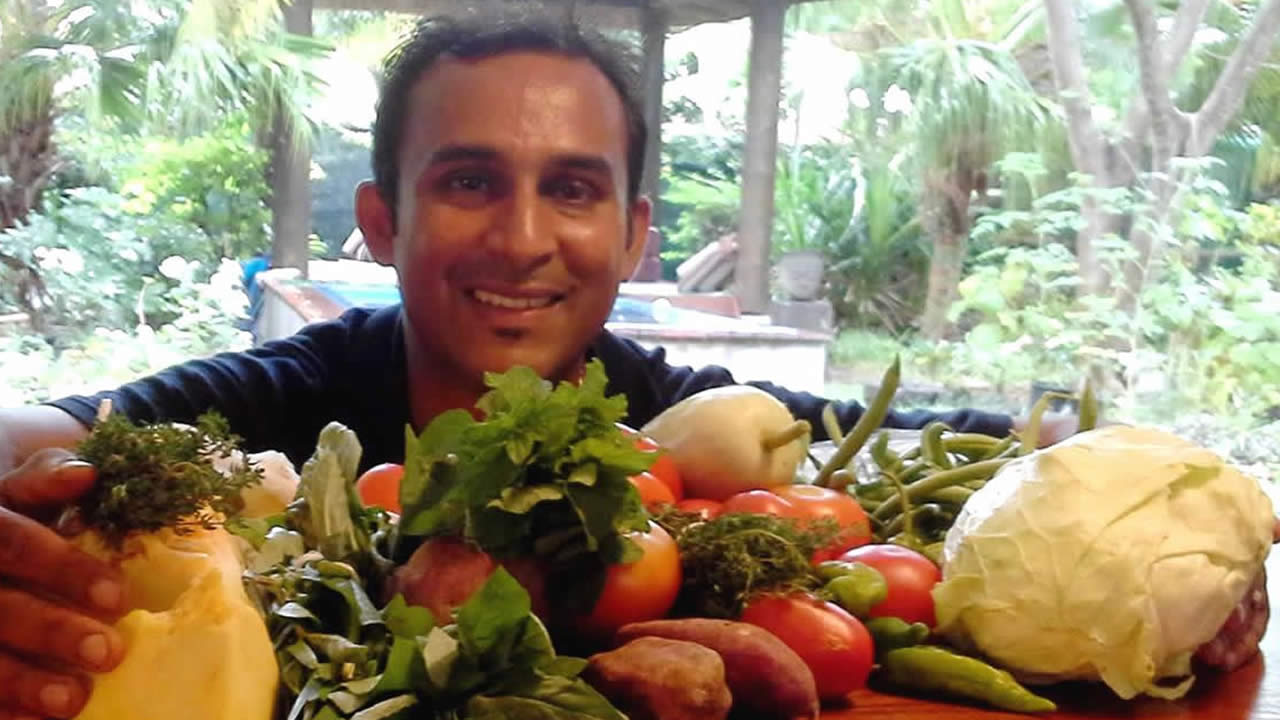
The Government has been putting much emphasis on bio farming over the recent years. It is expected that by 2020, 50% of our food should be bio. Several planters have shifted from traditional agriculture to bio farming. However, the demand may be increasing but the price is still exorbitant.
Today, consumers are very much concerned about the negative impact of agro-chemicals on their health, which has led to an increase in demand for vegetables and fruits produced through sustainable means. On the other hand, the Government is also encouraging production of bio crops as well, and is enabling much investment in this field. The recent adoption of the Use of the Pesticide Act by parliament has given more impetus to the development of a bio-based agricultural industry.

Currently, the use of State Land for bio farming activities (ha) is 39.3, the targeted use of State Land for 2018/2019 is 60 and by 2020/2021, it is expected to reach 120. Though many consumers are interested in purchasing organic vegetables or fruits, they are discouraged when it comes to price. Why is the bio so much expensive? Are we really going towards bio? Are our locals ready to accept bio? Experts in the field provide us with various elements.
The evolution of bio
Ganeshan Seelavarn, Chief Executive Officer of FAREI, reveals that the bio cultivation started three years back and it is gradually evolving. He explains that the first project of 66 acres of land was kicked off in Britannia. “Today we have a hundred planters. There are a large variety of vegetables and fruits being planted. Initially, people did not believe in this concept but they have been proven wrong, as the market is developing at a good pace. There are many planters in Britannia who are looking forward to expand their production to meet the growing demands.”
He states that today consumers are becoming health conscious and hence are willing to buy bio crops. He avers that the hotels and hypermarkets are having a great demand for these products.

Additionally, Sonny Wong, General Manager Commercial Innodis highlights that the demand for organic products generally is increasing but will remain a niche market until they become more affordable to the average consumer. “We are, however, convinced at Innodis that this segment will continue to grow and we are currently exploring different avenues to cater for the increasing demand. We have recently launched a range of organic vegetables under our brand New Earth™. It’s the only organic range of local fresh vegetables currently available in supermarkets. We have launched four supermarkets a few months ago as a pilot project and very soon, we will be extending our offering in other major supermarkets across the island.”
He argues that we do have a growing market for organic produce. “Over time, as more and more consumers become aware of the health benefits of chemical-free and pesticide-free fruits and vegetables, they will also be willing to pay marginally more for these products, and this will boost demand. Moreover, it’s a world-wide phenomenon, and Mauritians are inevitably exposed to information on social media about international trends regarding health.”
Ravi Rambujoo, director of Farm Basket, reveals that since three years now, he is in this field. He affirms that there is a demand for bio crops but unfortunately, this represents only 20% to 30% of the population.
Worth the cost?
Mauritian consumers are very careful when it comes to price. Bio crops are very healthy but at the same time, it is expensive. As stated by Sonny Wong, Mauritians are showing more and more interest in healthy, organic products. “This is confirmed by the growing number of organic products which can be seen in supermarkets, and also by the growing number of organic markets and exhibits around the island. The only barrier so far is affordability. Generally, organic products command an average premium price of 30% higher than the normal price. However, as demand increases and organic products are produced on a larger scale, we believe prices will go down.”
He underlines that prices are higher for organic products generally because of the quality of the ingredients used. “In the case of organic vegetables, higher costs are involved, for example, additional labour costs for weeding and controlling pests, given that organic farmers do not resort to dangerous shortcuts such as the use of pesticides/insecticides. However, in the case of New Earth, we practice Fair Trade principles, which ensure that farmers obtain a decent revenue for their labour, but which also ensure that the vegetables are sold at reasonable retail prices to the end consumer. This is one of the reasons why our products have been popular so far – they are affordable.”
Similarly, Ganeshan Seelavarn underscores that normally, bio vegetables and fruits are 10% to 15% more expensive. “As there is no use of pesticides, there is need to invest in labour and composting. There is also the fact the return in bio crops are fewer than traditional ones. This makes it a bit expensive. Nevertheless, many consumers are willing to pay a price to be healthy.”
The director of Farm Basket, on his part, argues that the price maybe high because planters take a lot of precautions and measures. “In order to give the best quality, we need to work hard on it. It is time consuming. We need to know the land well and keep a good balance. But in the long run, it becomes economical.”
| Vegetables | Approximate price |
| Ginger (100g) | As from Rs 20 |
| Curcuma (100g) | As from Rs 20 |
| Sweet Potato (500g) | As from Rs 35 |
| Carrot (500g) | As from Rs 40 |
| Beetroot | As from Rs 28 |
| Eggplant (500g) | As from Rs 40 |
| Voehm (500g) | As from Rs 42 |
| White Cucumber | As from Rs 45 |
| Colored Pepper (200g) | As from Rs 45 |
| Green Pepper | As from Rs 45 |
| Cherry Tomatoes (250g) | As from Rs 95 |
| Salad Tomatoes (500g) | As from Rs 70 |
| Lettuce | As from Rs 30 |
| Coriander | As from Rs 15 |
| Fruits | Approximate price |
| Banana (1 kg) | As from 35 |
| Papaya (850g-1kg) | As from Rs 40 |
| Pineapple (500-750g) | As from Rs 50 |
| Passion Fruit (500g) | As from Rs 85 |

Sanjay Motah : “Nothing makes them expensive, it is just the label bio”

Freelance Consultant in Quality Management System and Compliance, Sanjay Motah indicates that there is a complete misconception of the bio crop process in Mauritius. He avers that the mere fact of not using chemicals, pesticides, fertilizers does not mean that the product is already a bio grade. “To be able to grade any item bio there are tests that need to be carried out in the following aspects of production soil quality, water used for irrigation, animal manure used, a risk assessment been carried out to check on the probability of pollution, handling, processing and packaging.”
For him, it is so easy to put a label on a product and say it is bio and make money. “There are numerous certification bodies around the world that carries out the process of “certification” based on certain standards.
Nothing makes them expensive, it is just the label bio. A bio product is a product produced under certain circumstances where there are no chemicals, fertilizers, herbicides, insecticides, etc. used in the process. These requirements are very stringent overseas but not in Mauritius. Mauritius is Mauritius and we know how anybody can do anything without being bothered.”

Encouraging the Locals into Bio
Mauritians will be naturally turning to more and more healthy, organic products over time, as awareness of the benefits of organic products continue to grow, says Sonny Wong. “National campaigns such as the one launched by the Government regarding the use of pesticides are also much welcome.”
The CEO of FAREI states that awareness should start from primary school, for instance, the kids must be initiated to such type of gardening from school itself. For him, if this is done it will be easier to promote bio products.

Ravi Rambujoo argues that awareness is being done but there, it should be more targeted and specific. “We should show people how important it is to consume bio rather. The awareness campaigns should be more specific. The demand of bio is increasing but the pathway is long.”
Bio Farming Support Scheme
The Bio Farming Support Scheme with funding of Rs 5 million, as enunciated in Budget 2017/2018 to provide subsidy on the purchase price of bio inputs to small registered planters, was launched in March 2018. The scheme provides for up to 60% subsidy to small planters on the purchase price on bio inputs (bio fertilizer and bio pesticides) for a maximum of three crop cycles in a year. The aim is to encourage the utilisation and adoption of bio inputs by small planters in line with Government’s objective of converting 50% of food crop production system to bio norms by 2020 as well as bring the price of bio inputs at par with chemical inputs.
FAREI also is encouraging the cultivation of bio crops. For instance, there is a bio farming unit to accompany planters in their endeavors. FAREI is also undertaking research and development in this field. The Pamplemousses Station has been converted into an Organic Research Station and soon Rivière des Anguilles station will also be converted. Several trainings are also being given to planters to know about the bio diversity of their land.
 J'aime
J'aime













